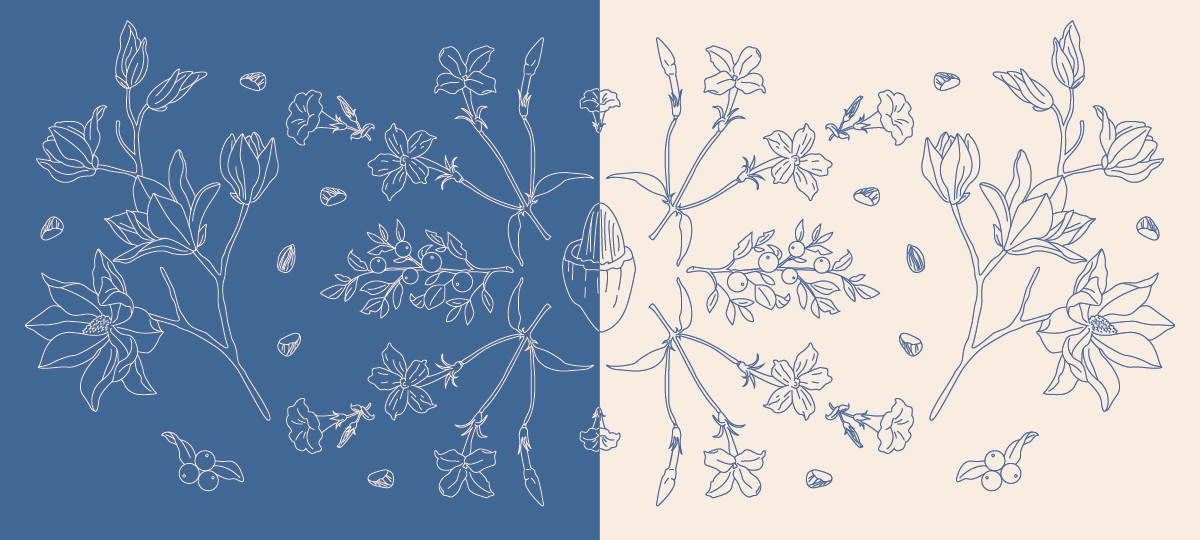A few blogs posts ago (specifically Here’s The Low Down on EO Safety) I was talking about the dilution ratios for using essential oils, and how more doesn’t always mean better. When using oils topically, it’s extremely important to dilute them appropriately with carrier oils because you really can be harmed (no joke). If you check out the link in the source below, I’ve attached an unfortunate case where Elise Nguyen from Wisconsin had applied an oil ‘neat’ (MLM term for undiluted – danger danger!) on her neck and wrists prior to using a tanning bed.
There are some essential oils (citrus) that are phototoxic, meaning, they do not react well to UV exposure. Ultimately, she suffered from 3rd degree burns. The photos are graphic so please be cautious while scrolling. Elise does claim responsibility because she hadn’t read the label, albeit small font, which did read ‘stay out of sunlight or UV rays for up to 12 hours after application’ which is definitely the responsibility of the consumer. But, with how loosely ‘Wellness Advocates’ from these MLM’s recommend improper usage of these oils, I honestly don’t blame the consumer because they are putting their full trust in someone that believes they have the education to promote a product. Elise does state, “On March 25th, I applied #doterra essential oils (which are appropriate to apply directly to the skin) to my wrists and my neck prior to a hot yoga class”, however, you shouldn’t risk applying them straight, no matter who tells you it’s safe to do so! Trust me.
Onwards to carrier oils.
There are a lot of carrier oils in the market that have various pros and cons. And remember, a carrier oil helps dilute essential oils to make them safer for topical application, and allows a slower absorption rate so it doesn’t evaporate too fast. With selecting a carrier oil, it really depends on what you would be using it for ie; face oil, dilute essential oils to mix with Epsom salts, scalp treatment etc. Below I have a list of carrier oils to help you decide what would fit your needs best (and I’ll tell you my favourites!)
Sweet Almond Oil (Prunus amygdalus)
– Contains vit. A, B1, B2, B6, D & E
– High % of mono and polyunsaturated fatty acids, trace minerals, rich in protein.
– For all skin types; itching, soreness, dryness, inflammation.
– Stores reasonably well.
*I personally use this for scalp treatments in the winter!
Apricot Kernel (Prunus armeniaca) / Peach Kernel (Prunus persica)
Good source of oleic and linoleic acid.
For all skin types; prematurely aged, sensitive, inflamed, dry, eczema
Easily absorbed, great for facial massage.
Best to refrigerate when not using.
Avocado oil (Persea americana)
High vit. content and fatty acids.
Unrefined cold pressed is deep green in colour and is the preferred choice in aromatherapy.
Refined is pale yellow.
Good for dry skin and wrinkles, easily absorbed into skin.
*I use this for my face oil!
Borage Oil (Borago officinalis)
Rich in essential fatty acids, including gamma linolenic acid (GLA), which are vital to skin health.
Expensive, but a small amount can be blended with other carrier oils to boost skin rejuvenating properties.
Evening Primrose Oil (Oenothera biennis)
Rich in fatty acids including GLA, vitamins, minerals.
Helps prevent premature aging of skin.
Great for psoriasis and eczema.
Fractionated Coconut Oil (Cocus nucifera)
Translucent, light viscosity, odorless, tasteless with an indefinite shelf life (won’t become rancid!)
Unlike other coconut oils, it’s not complete, the triglyceride chain has been removed to maintain its liquid form.
*Absolute favourite oil of mine to use for everything! Some people can have a sensitivity and break out.
Grapeseed Oil (Vitis vinifera)
Contains vitamins, minerals, protein, high % linoleic acid, 12-20% oleic acid and some vit. E.
For all skin types, good choice for oily or acne skin. No greasy feeling, satin finish.
*Many massage therapists use this but it can stain sheets.
Hazelnut Oil (Corylus avellana)
Principal constituent is oleic acid.
Rich in vitamins, minerals, and proteins and is easily absorbed.
Can be used for all skin types, tones and tightens, helps strengthen capillaries.
Beneficial for oily or combination skin and effective for acne.
Holly Oil (Ilex aquifolium)
Made in Canada, non-staining, indefinite shelf life.
No oily residue.
Contains antioxidants, and will not clog pores.
Jojoba Oil (Simmondsia chinensis)
From the bean, yellow in colour.
Contains protein, minerals, and a waxy substance that mimics collagen.
All skin types, excellent for skin, penetrative, has anti-inflammatory and antibacterial properties.
Great for dry scalp and hair, arthritis, psoriasis, eczema, acne, helps dissolve blackheads.
Indefinite shelf life.
*I use this for my scalp treatments, immediate relief of itching due to dryness in winter months.
Kukui Nut Oil (Aleurites moluccana)
From Hawaii, high in polyunsaturated fats.
Natural source of linoleic acid and alpha-linolenic fatty acids.
Quick penetrating, excellent for dry skin, providing a natural defence against moisture loss.
Recommended for eczema, psoriasis, acne and to ease radiation therapy.
Safe for use with babies.
Macadamia Nut Oil (Macadamia integrifolia or M. ternifolia)
Native to Australia, also grows in Hawaii.
Contains about 16-23% palmitoleic acid which is rarely found at high levels in vegetable oils. It is an essential fatty acid found in sebum, particularly that of infants, children and teenagers, giving it a natural affinity to the skin.
Palmitoleic acid diminishes in the sebum as we age, and given the high content of essential fatty acids, macadamia nut oil has restructuring properties, strengthening the skin lipidic barrier, thus improving skin moisturization.
Anti-aging properties making it a good carrier for mature skin.
Good for all skin types, but best for dry or aged skin.
Skin softening and wound healing.
Hypo-allergenic, self-stabilizing, non-pore clogging.
Safe for use with babies.
Olive Oil (Olea europaea)
Contains protein, minerals, vitamins.
Very greasy and scent may overpower essential oils.
*I use this exclusively for my massage therapy practice! Only organic of course!
Rosehip Seed Oil (Rosa rubiginosa)
Aka Rose Mosqueta, contains an amazing high level of both linoleic and linolenic fatty acids, and contains vit. C.
Aim for cold pressed, but solvent extraction is also acceptable.
Excellent for tissue regeneration, facial wrinkles, burns, scars, dermatological problems following radiation treatments, UV damage.
Safflower Oil (Carthamus tinctorius)
Contains 55-81% linoleic acid, proteins, minerals, vitamins.
Good for all skin types.
Beneficial on painful, inflamed joints, sprains and bruises, eczema and rough skin.
Not as stable as sunflower oil.
Sesame Seed Oil (Sesamum indicum)
High in vit. E, B complex and minerals.
Use in skin care as a natural moisturizer.
Useful in creams and sun products.
Soybean Oil (Glycine max)
High in vit. E, lecithin, and unsaturated fatty acids.
Suitable for all skin types.
Sunflower Oil (Helianthus annuus)
Contains 55-70% linoleic acid, 14-35% oleic acid, vit. A, B, D, E (the principal one) and minerals.
Good for all skin types, skin disorders, acne, seborrhea.
St. John’s Wort (Hypericum perforatum)
Rich, ruby red in colour.
Anti-inflammatory oil, soothing to inflamed nerves (neuralgia, sciatica, fibrositis), sprains, burns, bruises.
*This oil may increase photosensitivity, so make sure you do not get any UV exposure for at least 12 hours applying!
Tamanu (Callophyllum inophyllum)
Aka palm kernel oil.
Antibacterial, anti-inflammatory and analgesic, used in wound healing, noted as one of the most healing oils.
Use in hair and skincare, mix with other carrier oils at 10-50%
Wheatgerm Oil (Triticum durum or T. aestivum)
Valuable source of vit. E and essential fatty acids, cell regenerative.
Great for dry, mature skin, psoriasis, eczema.
Has a strong odour and heavy texture, use in small amounts with other carrier oils.
*Could be contra-indicated for someone allergic to wheat flour!

Subscribe to our newsletter!
The medical information on this site is provided as an information resource only, and is not to be used or substituted for any diagnostic or treatment purposes. The information we provide is for general use. Always seek the guidance of your doctor or other qualified health professional before making any medical decisions.
If you think you may have a medical emergency, call your doctor, go to the nearest hospital emergency department, or call the emergency services immediately. If you choose to rely on any information provided by The Honesty Policy, you do so solely at your own risk.
